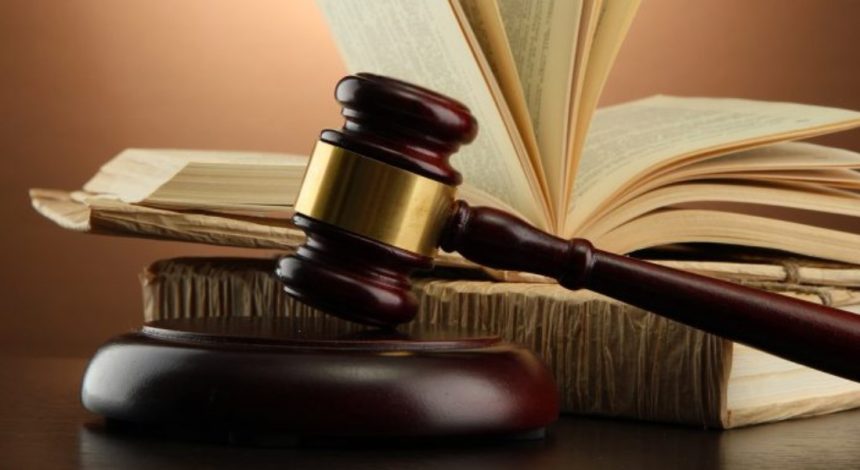Key Takeaways
- Understand the common misconceptions about criminal law.
- Get clarity on frequently misunderstood legal terms and processes.
- Learn about the differences between various categories of crimes.
- Discover the role of legal representation in the criminal justice system.
- Find out how criminal records can impact your future.
Introduction to Common Misconceptions About Criminal Law
Criminal law is often surrounded by myths and misconceptions, partly due to how it’s portrayed in movies and television shows. Clarifying these misconceptions is crucial for anyone entangled in the legal system. Misunderstandings create confusion and can lead individuals to make poor decisions under stressful circumstances.
Understanding the realities of criminal law is essential for those currently facing legal issues and anyone who wants to be well-informed. Misinformation can lead to unnecessary stress, many wrong choices, and even wrongful convictions. Thus, separating facts from fiction is essential for everyone, not just those directly involved in legal proceedings.
Misunderstanding Legal Terms and Procedures
One of the most common misconceptions is misunderstanding legal terms and procedures. Legal jargon such as “plea bargain,” “bail,” and “arraignment” is often misunderstood. For example, many people believe that a plea bargain means admitting guilt. In reality, receiving a lesser charge or avoiding a potentially harsher sentence can be a strategic decision if the case goes to trial. Consulting a Raleigh Criminal Defense Lawyer can offer the guidance one needs to navigate the complexities of the law effectively.
Bail is another term frequently misunderstood. It is often perceived as a fine or a means to secure freedom unjustly. Nevertheless, bail is a monetary agreement that permits a defendant to be freed from incarceration until their court date, with the goal of ensuring their appearance in court. Similarly, arraignment is commonly misunderstood as a trial. During this legal process, the defendant is officially accused and given the opportunity to plead guilty or not guilty, while being informed of the charges and their legal rights.
Lastly, “probation” and “parole” are often confused. Probation is a component of the court’s punishment instead of incarceration, whereas parole is the conditional freedom granted to a convict before their sentence is finished. Recognizing these distinctions can tremendously help in understanding criminal procedures, liberating individuals from myths that can cloud judgment.
Differences Between Felonies, Misdemeanors, and Infractions
Another area for clarification is the categorization of crimes. Understanding the differences between felonies, misdemeanors, and infractions can help grasp the severity of charges. Felonies are generally more severe crimes that can lead to lengthy prison sentences of over a year and include serious offenses such as murder, rape, and armed robbery. These crimes often have long-term consequences, impacting a person’s life significantly.
While still serious, misdemeanors are less severe than felonies. They can result in punishments like shorter jail terms, usually less than a year, or fines. Typical misdemeanors include minor theft, basic assault, and DUI, for which consulting a Raleigh DWI Lawyer could be beneficial. Understanding the middle ground between felonies, infractions, and misdemeanors is crucial in recognizing specific actions’ gravity and legal consequences.
Infractions are the least severe type of offenses, typically punishable only with fines rather than jail time. Many traffic violations, such as speeding or parking tickets, fall under this category. Gaining insight into these basic distinctions can offer valuable understanding of the functioning of the criminal justice system and what to anticipate in case of facing criminal allegations. Legal authorities such as FindLaw provide detailed breakdowns to educate the public on these distinctions.
The Role of Legal Representation
A lot of individuals do not fully appreciate the significance of having a lawyer in the criminal justice system. An attorney can provide invaluable assistance, from explaining complex legal terms to strategizing legal defense. Defense attorneys are crucial in navigating plea deals, obtaining bail, and ensuring fair trials. Their expertise can make a significant difference in the outcome of a case, potentially reducing sentences or getting charges dropped entirely.
Having legal representation is essential, not just a luxury, particularly in cases involving serious charges. Although public defenders are available for those who cannot afford private attorneys, they are often overburdened with cases, limiting the time they can dedicate to each client. Hiring a dedicated defense attorney ensures personalized attention and a tailored defense strategy. This personalized method could determine whether a severe punishment or a more forgiving one is given, providing the most favorable result based on the situation.
Moreover, defense attorneys have the skills to scrutinize evidence, challenge improper procedures, and negotiate with prosecutors. They provide a buffer between the accused and the complexities of the legal system, ensuring that their client’s rights are protected throughout the process. Given these critical roles, the value of competent legal representation cannot be overstated.
Impacts of Criminal Records
The long-term impacts of a criminal record are often understated. A criminal record can affect various aspects of life, including employment opportunities, housing options, and social relationships. Even minor infractions can appear on background checks, significantly affecting prospects. For instance, many employers conduct background checks as part of their hiring process, and a criminal record can be a significant red flag that disqualifies an individual from job opportunities.
Similarly, housing applications can also be denied based on one’s criminal history. Landlords often perform background checks, and a criminal record can make it challenging to secure rental housing. Even social relationships can be strained, as people may judge or distance themselves from those with a criminal past. Understanding the far-reaching impacts of a criminal record emphasizes the importance of seeking competent legal representation to mitigate these consequences.
Beyond immediate implications, a criminal record can have lasting effects on one’s ability to obtain professional licenses, secure loans, or even travel to certain countries. The stigma attached to a criminal record can become a lifelong burden, making it crucial for individuals to understand the importance of legal representation and the potential to expunge or seal records under certain conditions. Knowing these impacts encourages a more informed approach to facing and understanding criminal charges.
Conclusion
Clearing up common misconceptions about criminal law can empower individuals to make more informed decisions. From understanding the nuances of legal terms to recognizing the importance of legal representation, being well-informed is the first step in navigating the criminal justice system effectively. Consulting with a legal expert can provide tailored advice for any situation involving criminal charges, helping to separate myths from reality.















